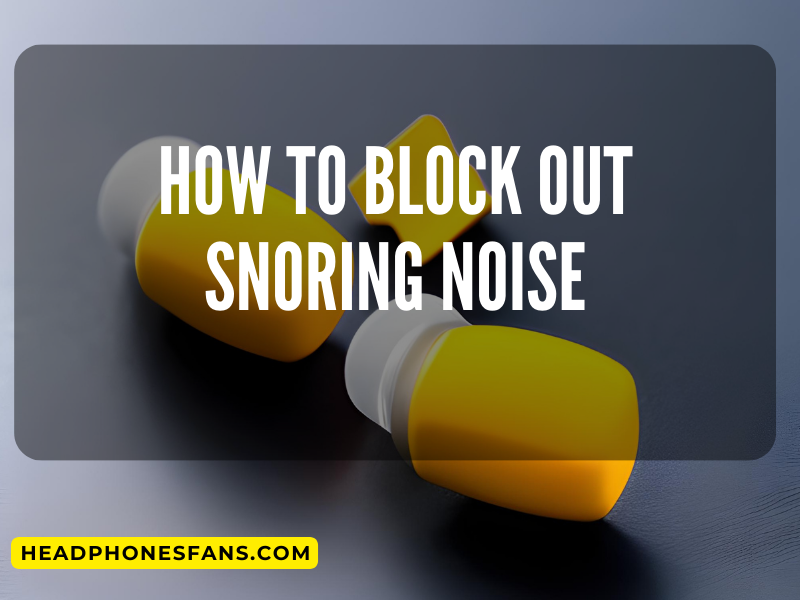Snoring can be a major disruptor when it comes to getting a good night’s sleep. The constant noise can leave you feeling exhausted and frustrated, impacting your overall well-being. At [our website], we understand the struggles faced by those who sleep with a snorer, and we’re here to help. In this comprehensive guide, we will provide you with effective strategies to block out snoring completely, allowing you to enjoy peaceful nights of uninterrupted sleep.
Understanding the Causes of Snoring
Before diving into the solutions, it’s essential to have a basic understanding of what causes snoring. Snoring occurs when the flow of air through the mouth and nose is partially blocked during sleep. This blockage leads to the vibration of the surrounding tissues, resulting in the familiar snoring sound. Some common causes of snoring include:
- Nasal Congestion: Congestion in the nasal passages can obstruct airflow, leading to snoring.
- Sleeping Position: Certain sleeping positions, such as sleeping on your back, can increase the likelihood of snoring.
- Obesity: Excess weight can contribute to the narrowing of the airways, increasing the chances of snoring.
- Alcohol and Sedatives: Consuming alcohol or sedatives before bed can relax the muscles in the throat, making snoring more likely.
- Smoking: Smoking irritates the tissues in the throat and can lead to inflammation and snoring.
Effective Strategies to Block Out Snoring
Now that we understand the causes, let’s explore some effective strategies to help you block out snoring completely. By implementing these techniques, you can create a more peaceful sleep environment for yourself and your partner.
1. Maintain a Consistent Sleep Schedule
Establishing a consistent sleep schedule can help regulate your body’s internal clock and improve the quality of your sleep. Aim to go to bed and wake up at the same time every day, even on weekends. This routine promotes a healthy sleep pattern and reduces the chances of snoring.
2. Optimize Your Sleeping Environment
Creating an optimal sleeping environment is crucial for achieving a peaceful night’s sleep. Consider the following factors:
- Invest in a Quality Mattress: A comfortable and supportive mattress can improve your sleep posture and reduce the likelihood of snoring.
- Use Supportive Pillows: Properly supporting your head and neck with the right pillows can help keep your airways open and prevent snoring.
- Ensure Proper Room Ventilation: Good air circulation in your bedroom can minimize stuffiness and reduce the risk of snoring.
3. Encourage Side Sleeping
As mentioned earlier, sleeping on your back can contribute to snoring. Encouraging side sleeping can significantly reduce snoring episodes. Here are a few tips to promote side sleeping:
- Body Pillows: Placing a body pillow behind your back can prevent you from rolling onto your back during sleep.
- Adjust Your Sleeping Position: If you find yourself turning onto your back while asleep, gently readjust your position to sleep on your side.
4. Manage Nasal Congestion
Clear nasal passages are vital for unobstructed airflow during sleep. If you frequently experience nasal congestion, consider the following remedies:
- Nasal Strips: These adhesive strips adhere to the outside of your nose, helping to open up the nasal passages and reduce snoring.
- Nasal Irrigation: Using a saline solution or a neti pot can help flush out mucus and reduce nasal congestion.
5. Lifestyle Modifications
Certain lifestyle modifications can have a positive impact on reducing snoring. Consider the following changes:
- Maintain a Healthy Weight: If you’re overweight, losing excess pounds can alleviate the pressure on your airways and minimize snoring.
- Avoid Alcohol and Sedatives: Limit or avoid alcohol consumption and sedatives before bedtime, as they relax the throat muscles and increase the likelihood of snoring.
Remember, it’s always important to consult with a healthcare professional if you have persistent snoring issues or suspect an underlying medical condition.
Conclusion
Snoring can disrupt your sleep and affect your overall quality of life. By implementing the strategies outlined in this comprehensive guide, you can significantly reduce or even block out snoring completely. Remember to tailor these techniques to your specific needs and consult a healthcare professional if you require further assistance. Take control of your sleep and enjoy nights of uninterrupted restful slumber.

Hey there mobile audio lovers! My name is Darlene R, founder and chief editor at headphonesfans.com. Ask any mobile audio fanatic, installer, or company rep what makes a good car speaker, sub or amp, or, better yet, why he or she prefers a certain brand over another, and be prepared to endure a litany of opinions, viewpoints, and passion-fueled perspectives. To be honest, mobile audio shopping can be a daunting task without a guide, so I’ve assembled what I feel are the best products to consider to make things easier for you. Welcome headphonesfans.com!




